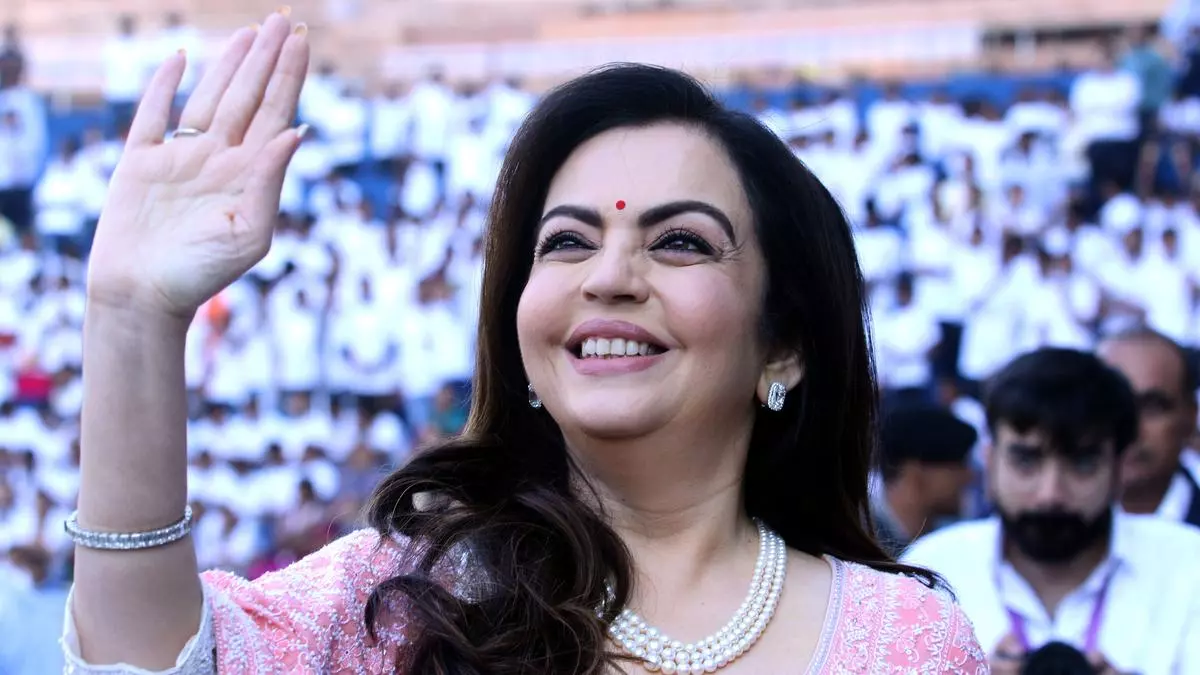President Bola Ahmed Tinubu spoke to Nigerians through the media in his first presidential Meet the Press in 18 months. Since then, the interview has provided ample ammunition for back-and-forth on social media. The tenor of conversations has been more negative than effusive, except the criticism is balanced and almost tilted against the journalists who conducted it. The team comprised Dr. Reuben Abati (ARISE TV/ThisDay), Maupe Ogun-Yusuf (Channels TV), Nnamdi Odikpo (NTA), Jide Otitoju (TVC), Umar Farouk Musa (VOA), Ruth Olurounbi (Bloomberg News), and Azu Ishiekwene of Leadership.
Seven journalists from print and broadcast organs interviewed the president. Mr President insisted his policies are in the right direction and making the right impact. His answer was Nay to any suggestions for review; he even scored himself a hundred per cent until an interviewer pointed out how unseemly it was for him to set an examination and grade himself.
Criticisms against the media team revolved around the lack of follow-ups and the limited range of questions. Etim Etim, a freelance columnist across platforms, observed the lack of questions about ECOWAS as it disintegrates under the leadership of Nigeria’s president, Bola Tinubu. “On the domestic front, I expected questions on the debilitating political crisis in Rivers State, where the FCT Minister is the leading actor. How could the president be comfortable with what’s going on in Rivers? There were only three follow-up questions – one from Maupe Ogun-Yusuf of Channels and two from Babajide Kolade-Otitoju of TVC, a network owned by the president. Ogun-Yusuf’s follow-up was on why subsidy was not removed in phases. At the same time, Kolade-Otitoju pressed the president on his unwieldy cabinet size despite his rhetoric on cutting the cost of governance. The lack of follow-ups was apparent when Tinubu insisted that he does not regret doing away with fuel subsidy, despite the pains it brought, and asserted that the government ‘’has been meeting its obligations in the last three months without going to the NNPC’’.
What does this mean? Nobody asked. Essentially, the President suggested that despite no- receipt of oil revenues in the last three months, the government has been functioning – a tribute to the efficacy of the administration’s fiscal policies. But in real terms, the president was celebrating the inability of NNPC to fulfil its obligations. This was an opportunity for the journalists to ask questions on the oil industry, oil theft, and the integrity and competence of the management of the state oil company. NNPC is supposed to receive and remit oil revenues to the consolidated fund as the Constitution stipulates, just as other incomes from VAT, company income tax, port charges and other taxes. These are then shared monthly with the federal government, the 36 states, the FCT, and the 774 LGAs. The inability of the NNPC to account for crude oil sales and remit to the federation account means that the country depends on debts raised through expensive junk bonds in the European markets to meet its obligations. Another loose end of the night was the inability of the President to drill down on his controversial tax reform bills and explain them clearly to Nigerians. These proposals have generated quite a storm across a section of the country, with many leading politicians expressing doubts about Tinubu’s true intentions. I had expected the president to marshal his argument on why he is introducing a new sharing formula for VAT, for example, and other innovations embedded in the bills. He glossed over the question as if the people complaining were insignificant.”
Leadership’s Azxu Ishiekwene explained in an article what, why and how the interview transpired https://www.azuishiekwene.com/back-story-of-tinubu-interview?fbclid=IwY2xjawHacRNleHRuA2FlbQIxMQABHQfzQ0DCgQDXsjGUUir9-Nqakk5rgJ-vMcl64y1SjosUI9fkvBd5Zd05bA_aem__3wXLLXB3RYjnX4Nord6NQ.
It is worth reading.
Are curses cyberbullying?
Police and civil rights activists started a debate on the place of curses. The point-counterpoint featured Prince `Olumuyiwa Adejobi, spokesman of the Nigerian Police, and Barrister Inibehe Effiong, a rights activist.
Their exchange is worth recounting.

Prince Olumuyiwa Adejobi
@Princemoye1
Raining direct curses on someone online is cyber bullying, not an expression of freedom of criticism. Cyberbullying, which is even different from defamation, is a criminal offence and is punishable. Be guided.

Inibehe Effiong
@InibeheEffiong
@InibeheEgfiong
This is ignorance of the law raised to power 1000.
This ridiculous opinion, coming from the spokesperson of Nigeria’s primary law enforcement agency, says a lot about the decadence of our institutions.
To be clear, raining curses on someone is not a criminal offence, and I challenge the Force PRO to cite any law that supports his statement.
By Section 36 (12) of the Nigerian Constitution, for an act of omission or commission to be termed a crime, it must be expressly and specifically defined as such under written law.
This Force PRO has a history of inventing imaginary offences from his head.
Also, curses do not constitute a threat to the life of the person that is cursed.
Curses do not have effect or value in the eyes of the law because they are premised on superstition or, at best, supernatural forces.
For example, telling someone, “It shall not be well with you,” is a prayer; prayer can be positive or negative. Wishing someone evil is also not a matter of legal redress.
The law does not concern itself with trifling things or spiritual matters.
What is more appalling is that @PoliceNG’s supposed image-maker does not know that the Cybercrimes Act has since been amended and that the notorious wording of the provisions of the old Section 24, which the police have been using to witch-hunt critics, has been repealed.
I urge Nigerians to ignore the misleading statement of @Princemoye1 as it is baseless.
Who is politicising the deaths from stampedes in Ibadan, Abuja, and Okija?
While affected families mourn and citizens rue the tragic losses in stampedes in Ibadan, Abuja, and Okija by would-be beneficiaries of the largesse of fellow citizens, the `federal government seeks villains. President Tinubu blamed the organisers and the impatience of Nigerians who did not observe a queue culture during the presidential media interview. Days later, Sunday Dare, a presidency spokesman, accused Mr Peter Obi of politicising the incident for blaming the socio-economic conditions of Nigeria for the desperation.
Dare asserted that Obi’s remarks were indecent. “When seeking someone who benefits from the misfortune of others or confusion — what the Yoruba people describe as Aríje nínú Màdàrú — look no further than Peter Obi.
“His recent comments on the avoidable tragedies in Anambra and Oyo states lack statesmanship and decency, even as he clings to the fading echoes of his much-vaunted political victory. This attempt to score cheap political points falls flat. Leaders are expected to speak responsibly and offer support in times of unfortunate tragedy. President Tinubu cancelled all engagements, expressed profound sadness over the loss of lives, and ordered an immediate investigation. That is the way of true leadership. These incidents have highlighted critical issues that must be addressed.”
What did Peter Obi say? ““I am deeply saddened and distressed by the tragic loss of lives in desperate searches for food,” Mr Obi said. “These tragedies reflect the systemic failures that plague our society. The desperate quest for survival in these harsh economic times has driven our people to extremes in their search for food, often at the cost of their lives.”








Leave a Comment